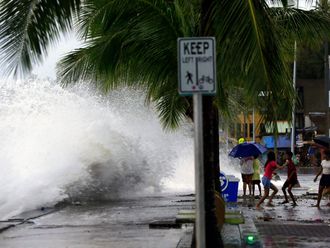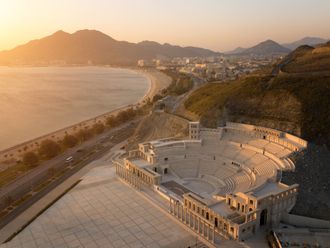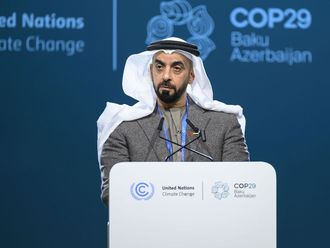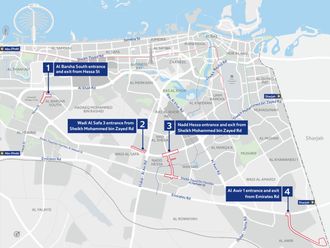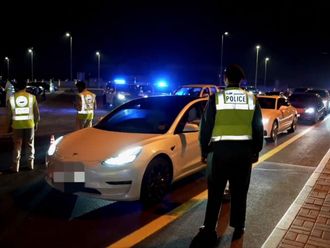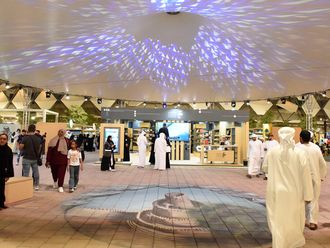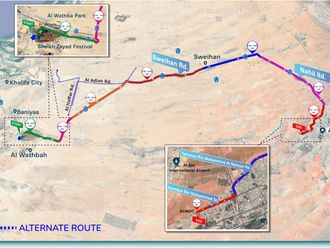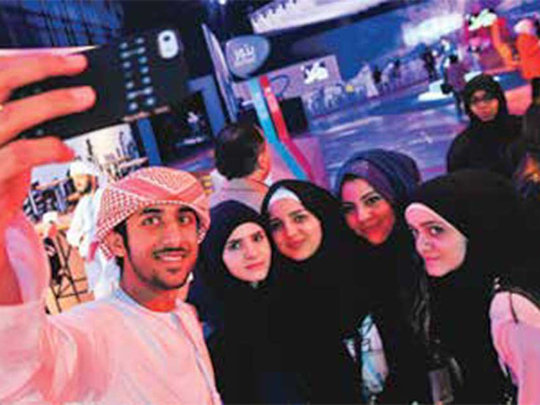
Dubai: Arab youth are straddling a “fault line between hope and despair”, reveal findings of the largest Arab youth survey of it kind.
Unveiled on Wednesday in Dubai by Asda’a Burson-Marsteller, the ninth annual Arab Youth Survey trends from face-to-face interviews of 3,500 youth in 16 countries suggest a widening chasm between young people’s hopes living in wealthy Gulf states compared to their neighbours in Yemen and Levant states.
The survey, “The Middle East, A Region Divided", framed an emergent Middle East youth population between ages 18-24 who share linguistic, religious and cultural values but who are “increasingly separated by access to opportunity,” said Sunil John, founder and CEO of Asda’a.
The survey results are important given that the youth population make up 60 per cent of the region’s population.
Role model
The 2017 survey results found that young Arabs across the region viewed the UAE as a model on one hand, while seeing extremism and jobs are major issues in the region that need to be addressed.
Driven by robust and diversified economy as well as visionary leadership known for their extensive humanitarian work overseas, the United Arab Emirates have developed a global reputation for encouraging a "can-do" attitude among its residents respectful of religious and cultural diversity.
His Highness Shaikh Mohammad Bin Rashid Al Maktoum, Vice-President and Prime Minister of the UAE and Ruler of Dubai, reviewed the Arab Youth Survey on Wednesday, and said: “The UAE is a country for everyone; the ambitions of young Arabs align with ours, and our dream is for the entire Arab region to prosper.”
Today I reviewed the findings of the 9th annual Burson-Marsteller's Arab Youth Survey 2017.
— HH Sheikh Mohammed (@HHShkMohd) May 3, 2017
The UAE has leaped ahead as the country in which most young Arabs want to live, followed by the United States then Canada
— HH Sheikh Mohammed (@HHShkMohd) May 3, 2017
The young people surveyed identified the UAE not only as a regional role model, but also as the No.1 ally to their nations.
— HH Sheikh Mohammed (@HHShkMohd) May 3, 2017
The UAE is a country for everyone; the ambitions of young Arabs align with ours, and our dream is for the entire Arab region to prosper.
— HH Sheikh Mohammed (@HHShkMohd) May 3, 2017
The sweeping annual survey of Arab youth covers 16 countries in the Middle East.
3,500 face-to-face interviews across 16 countries. Download the 9th #ArabYouthSurvey top 10 findings here https://t.co/AkcUrvQZH7 pic.twitter.com/v0Dz5ipkRC
— Arab Youth Survey (@ArabYouthSurvey) May 3, 2017
Finding #1 from the 9th edition of the #ArabYouthSurvey. Download the full survey here https://t.co/yUaHlyetlk pic.twitter.com/XiRJ2WB20Y
— Arab Youth Survey (@ArabYouthSurvey) May 3, 2017
Finding #2 from the 9th edition of the #ArabYouthSurvey. Download the full survey here https://t.co/yUaHlyetlk pic.twitter.com/87xUc8siaq
— Arab Youth Survey (@ArabYouthSurvey) May 3, 2017
Finding #3 from the 9th edition of the #ArabYouthSurvey. Download the full survey here https://t.co/yUaHlyetlk pic.twitter.com/EqXK099t0N
— Arab Youth Survey (@ArabYouthSurvey) May 3, 2017
Interviewers spoke to 250 respondents in UAE, Egypt and Saudi Arabia and 200 respondents in 13 other Middle Eastern countries included in the landmark survey.
At the survey release in Dubai, John said there is a “clear split in geographics between the haves and the have-nots … hope and despair is defined by the place you live.”
In the GCC, for example, the survey found that 85 per cent of respondents said their countries are going in the right direction in marked contrast to 85 per cent of those surveyed in Levant and Yemen who said their countries were going in the wrong direction.
The split was also obvious again when 78 per cent of GCC respondents said their best days are ahead of them while 66 per cent of Yemen and Levant respondents said their best days were behind them.
'Troubling'
“The findings from this year’s survey are profoundly troubling. In the nine years we have conducted this important research – the biggest study of its kind into the region’s most important demographic – we have always seen geographic differences, but never have they been so pronounced,” John said.
The survey found that while youth saw Daesh as now weaker, unemployment is now seen a major concern for 35 per cent of youth.
The survey noted that youth want better education reforms as well as good-paying jobs.
Job concerns
One out of two young Arabs (51 per cent) said that they are ‘very concerned’ about the jobs situation, an increase of 9 percentage points over last year, with youth in Iraq (69 per cent), Algeria (64 per cent) and Bahrain (60 per cent) most concerned about unemployment.
Another major issue of concern for young Arabs is the election of US President Donald Trump which has resonated quite negatively throughout for the region’s up-and-coming generation.
As much as 83 per cent of youth surveyed see Trump unfavourably as compared to 77 per cent who didn’t like former President George W. Bush and 52 per cent for President Barack Obama.
Seventy per cent of young Arabs said President Trump is anti-Muslim and 49 per cent said the travel bans made it easier for youth to be radicalised.
Young Arabs also said President Trump’s election may will impact the Middle East in the next five years more than other issues such as low oil prices, Daesh’s shrinking territory in Iraq and Syria as well as continuing conflict in the region.


